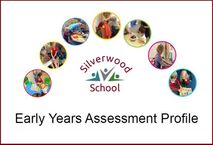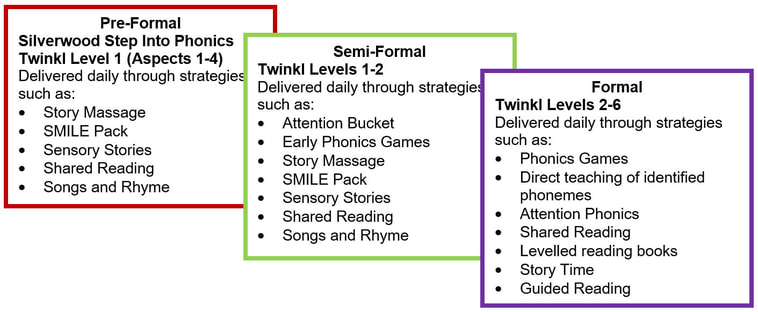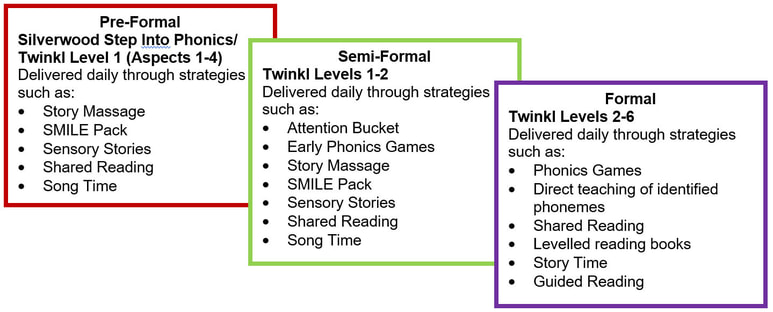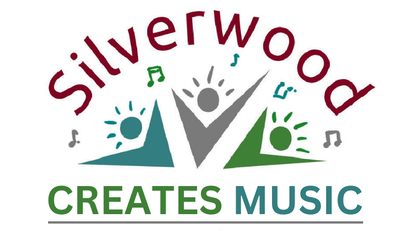|
Silverwood School is passionate about delivering a creative and diverse curriculum that meets the needs of all pupils ensuring they are successful in their lives, both in the school community and beyond. Our ambitious curriculum is under-pinned by a fundamental belief in our Silverwood values; it ensures that all pupils reach their full potential and develop into the most independent and successful young adults that they can be. Silverwood School is a strong, nurturing community, which creates a sense of belonging and celebrates individual success at every opportunity.
Provision, which is based on strong positive relationships, identifies the needs of each individual pupil to develop communication, independence and their own sense of self. The school believes that working within communities and fully utilising all aspects of Learning Outside the Classroom are central to supporting well-being and preparation for adulthood. Providing different pathways through a holistic approach allows pupils to progress on personalised learning journeys. The curriculum is reflective of pupil need, regardless of cognitive level, and seeks to build progress in a bespoke manner. It is not limited by an age-specific approach, but instead pathways are shaped by needs identified within EHCPs, including as appropriate, access to a range of qualifications and accreditations. The curriculum at Silverwood School is designed to develop transferable skills that equip children and young people for life beyond school. Curriculum OverviewAt Silverwood, assessment is an ongoing process, which enables us to celebrate the wide range of successes of our pupils. Regular assessment and monitoring enables the smallest steps of progress to be captured and celebrated with the pupils themselves and their families, which is an important part of their development. The main aim of our assessment system is to enhance learning, and inform both pupils and staff of next steps for groups of pupils and individuals. We have developed an assessment system that builds on skills, strengths and interests of our pupils. As well as highlighting what a pupil is able to do, we are able to identify gaps within knowledge and understanding, to guide planning and enable those gaps to be filled. The regular use of good quality assessment also helps identify any barriers to learning and ensure the necessary support is put in place in a timely manner to encourage pupils to achieve their best. We use different types of assessment depending on the needs of the learner and stages of development. Pupils in Early Years are assessed using the EYFS framework, adapted to suit our pupils, through the assessment tool Evidence for Learning.
Pupils following the pre-formal and semi-formal pathway are assessed against Silverwood Branches (our bespoke assessment system), also via Evidence for Learning. There are five Branches, one for each curriculum area, allowing achievements to be captured at a range of levels as pupils do not always progress in a linear manner. Pupils following the formal pathway are assessed in subject areas, using Progression Steps within the BSquared assessment package. Alongside Progression Steps, pupils in Key Stage 4 access nationally recognised qualifications and awards at Entry Level. Pupils following the Preparing for Adulthood pathway through the Post-16 curriculum continue to work on key literacy, numeracy and life skills. They also access nationally recognised qualifications and awards at Entry Level. All pupils at Silverwood School have an Education and Health Care Plan (EHCP). Progress towards the outcomes in the EHCP are monitored, discussed and reported at the annual review. In order to inform this process, each pupil has up to 8 targets across the four areas of the EHCP which are reviewed 3 times a year. These are targets which are personalised to each pupil and may also link to the curriculum if this is deemed appropriate. These targets will be assessed using Evidence for Learning; a tool which will also enable us to gather evidence towards the targets. Within our delivery of ASDAN at Silverwood, we strive to engage all post-14 pupils through relevant and motivating courses. This enables them to achieve meaningful learning outcomes and lifeskills which can elevate them to go on to having a more autonomous life as well as opportunities for further education, training and work. We aim to empower them through their preparing for adulthood journey by delivering diverse, enriching and individualised programmes. Our ambition is that our young people should have the opportunity to discover, develop and make use of their abilities to affirm their identities, contribute to society, and challenge educational and social inequalities through progressive ASDAN accreditation and qualification pathways.
At Silverwood, we believe that all pupils can celebrate success and achievement by following a flexible and inclusive pathway throughout KS4 that aligns with our school values. The pathway chosen for each pupil is at a level that is appropriate, engaging and motivational and encourages students to develop a love of learning combined with skills for success in the wider community. WJEC Entry Pathways Personal Progress allows pupils to develop their independent skills, knowledge and self-awareness by following an accessible regulated route that offers the widest possible range of quality-assured learner achievements. The qualification and framework is accessible to the all students who follow this pathway at three different levels – award, certificate or diploma. The learner’s needs are extended beyond the outcomes covered in the Personal Progress units and pupils will receive the same aspirational opportunities, learning themes, outcomes and high-quality teaching as their KS4 peers as highlighted in The Silverwood Way.
Pre-formal Curriculum
The Pre-formal Curriculum is for pupils who have profound and complex needs. The curriculum is designed to meet the needs of pupils through a personalised and adapted approach, valuing the process as much as the achievement and offering flexibility in order to be responsive to the needs of the individual learner. It focuses on the early communication, social, emotional and cognitive skills that are the foundation of learning. It is a curriculum that recognises the importance of play in a child’s development and the need for sensory and multi-sensory approaches to learning. It acknowledges what learners can do by supporting and developing their strengths and abilities and it is designed to be delivered in an integrated way, incorporating learning, therapy and health needs. Semi-formal Curriculum
The Semi-formal curriculum is delivered through a thematic based approach. This curriculum pathway meets a range of complex needs as well as learning difficulties, through a highly bespoke curriculum and personalised approach. For some pupils a social communication, emotional regulation and transactional support focus provides pupils with the skills and tools to be able to manage their own feelings, anxieties and behaviour, as well as understand and utilise effective and appropriate methods of communication. This equips our learners with the ability to meaningfully interact with, and convey needs to, familiar people; as well as those who help to support us in the wider community. The curriculum is designed to be fun, engaging, practical and meaningful and match to pupils learning and developmental needs. It aims to promote life skills, independence, communication and sensory integration activities to prepare children for learning. Regardless of physical, emotional and learning challenges, teaching through the Semi-formal curriculum captures the interest and imagination of our pupils. Formal Curriculum
The formal curriculum consists of adapted National Curriculum subjects, combining life skills, Learning outside the Classroom and creative subjects. The Formal curriculum is for those pupils who may have a range of needs, but who are cognitively able to access many aspects of a more formal curriculum framework, modified in line with pupil’s developmental level and additional needs. Pupils experience the formal curriculum in both a discrete and theme based approach that aims to develop thinking and independent learning skills enabling us to build learning capacity and lifelong skills. At Silverwood we have adapted subjects and topics to reflect the needs of our pupils, whilst ensuring they provide ambition, challenge and progress.
The formal curriculum, which includes a rich diet of both core subjects and more diverse subjects, works to ensure that the experience of learning is smooth, and that cyclical learning topics support learners in embedding skills and knowledge into long term memory through ‘over learning’ as well as contextualised opportunities for application. Subjects taught underpin the core values through explicit references; practical subjects are designed to support fine and gross motor skills as well as providing pupils with very real opportunities to develop skills for independent living and work beyond school. All subjects are designed to develops pupil’s ability to communicate effectively, and to learn about other communities, countries and cultures; an important part of British Values for Silverwood School. We support pupils to consider different learning opportunities and apply them to real life situations. If pupils require a more bespoke curriculum, we adapt and tailor it to the needs of the individual. Where pupils show an aptitude in a particular area, they are encouraged to develop this to the highest level. The formal curriculum at Silverwood goes beyond the academic and focuses on developing skills for life. Pupils at Silverwood will have the opportunity to practice and rehearse these skills in different contexts. Everything we do is there to support every child towards an independent as adulthood. We recognise that for each pupil, this will present different challenges and opportunities, therefore thorough preparation and practice is essential in every subject area as well as ad hoc learning opportunities. We pride ourselves on the responsive and adaptive curriculum we offer every pupil at Silverwood. Many pupils go onto gain nationally recognised accreditations during key stage 4 and 5. KS4 Options:
EYFS Curriculum Map Example: An Encounter and Discover CurriculumWe plan a curriculum based on children’s development, predictable interests and their own interests. Through careful observation of the children, we are able to find out their interests and what motivates them and promotes their engagement. We also look at world around us and how it is changing, and we follow current national and international events such as sporting events, Royal events and a range of festivals.
Medium term plan example:
Useful LinksHere is a link for an Early Years Activity Library Here is a link for the Statutory framework for the early years foundation stage Characteristics of effective learning
Transition into Early YearsOpen information sessions at Silverwood School (3 x per year) ▼ Pupils issued with EHCP (Education Health Care Plan) ▼ Consultation of school placements ▼ School place offered ▼ TISMs (Transition into School Meetings) (Term 5) ▼ Visits to existing settings (Term 6) ▼ New starter session – Information sessions, including other professionals (for example Learning Disability Team, Wiltshire Parent and Carer Council), support with information sharing paperwork. (Term 6) Stay and Play sessions (Term 6) ▼ Home visits and outreach work (Beginning of Term 1) ▼ Stay and Play sessions/Phased Inductions (Beginning of Term 1) ▼ Planning meetings with Speech and Language Therapist and other Professionals (Term 1) ▼ Annual Reviews of EHCP (By end of Term 2) A Day in the Life of an EYFS Class at Silverwood…Satellite Provisions - TrowbridgeAt Silverwood School, we aim for all pupils to develop a love of stories, books and reading. Books are an integral part of our curriculum and our classroom environment. We see all of our pupils as readers and we ensure that phonics and spelling is taught across all Key Stages. What is Phonics?Phonics is a way of teaching pupils how to read and write. It helps pupils to hear, identify and use different sounds that distinguish one word from another. Written language can be compared to a code, so knowing the sounds of individual letters and how those letters sound when they are combined will help pupils to decode words as they read. Understanding Phonics will also help pupils know which letters to use when they are writing words. Learning this skill is often the beginning of a pupil’s journey to learning to read. EYFS, Key Stages 1 and 2 ProgressionKey Stage 3 and 4Within the Pre and Semi Formal Pathway, pupils continue to receive Phonics teaching using Twinkl Phonics during each literacy lesson. Within the Formal Pathway pupils receive dedicated spelling and Phonics teaching as part of each timetabled English lesson. Pupils are assessed regularly and when they have achieved all aspects of Level 6 phonics they will explore challenging texts during Guided Reading sessions. In addition to Phonics lessons, all students across the school have access to:
Measuring ImpactEach pupil will be baseline assessed and their phonic knowledge will be assessed and monitored termly. This data will be used to inform provision. Groupings are flexible and pupils are able to move between groups to allow for timely challenge and support.
At Silverwood, we recognise that assessment data will demonstrate the progression of pupils’ reading and spelling skills. The impact of our Phonics provision will also be demonstrated by pupil’s engagement with stories, their enthusiasm for sharing books and their growing independence in engaging with texts at home and school. Silverwood School offers a wide range of opportunities for pupils to develop their talents and interests, whilst promoting independence and interpersonal links with pupils in other areas of the school. SILVERWOOD CREATES MUSIC
is a brand new song-writing and music making programme that will be running across all Silverwood campuses during the 2022/23 academic year. The programme will be facilitated by Will Lawton from ‘The Rhythm Practice’, a music therapist and song-writer who has been working at the Trowbridge campus for several years. The aim of this project is to offer music opportunities to small groups of pupils, encouraging creative experimentation and improvisation. At the heart of the sessions will be an emphasis on free expression and collaboration with a strong therapeutic approach. As ideas and songs emerge over time, some will be recorded with the aim of producing a Silverwood album and live performances towards the end of the school year. Will Lawton will dedicate one day a week to delivering this project and will be on-site every Tuesday at each campus as follows:
For any questions about this project, please get in touch with: Jo Burton (Assistant Head of Learning, Silverwood School) [email protected] Will Lawton (Music Therapist, The Rhythm Practice) [email protected] Additional enrichment activities will be online soon
Total Communication at SilverwoodCommunication is at the heart of life; it is pivotal to sharing our joy and sadness, building relationships, advocating for ourselves and engaging in learning. At Silverwood School we want to provide an environment that fosters a sense of safety and promotes self-advocacy and regulation, in order to enable our students to develop communication skills for life. We recognise that communication is all-day, every day and seek to offer meaningful opportunities for students to experience, learn and practice their communication skills. Meet the Communication team Nicky Caslin – Lead SENCo Faye Booth – Total Communication Lead Hannah Simkins – HCRG Speech and Language Therapist Angela Fairgrieve – HCRG Speech and Language Therapist Ruth Jones – Speech and Language Therapist Rosie Raikes-Palmer – AAC support Becky Nottingham – SENCo Julie Inglis – SENCo Katie Baxter – SENCo Ciorstan Malcolm – SENCo Communication Bill of Rights The Communication Bill of Rights sums up everything we strive to achieve at Silverwood. It is a tool that informs our students and supporting adults as to what and how communication should take place. It speaks to students feeling confident to advocate for themselves, asking questions and seeking support with their communication. It helps adults set their expectations too, in terms of what support they must be providing and considering when working with our students. Honouring all communicationMany students at Silverwood use Augmentative and Alternative Communication (AAC) to communicate. AAC may look different for everyone and so we immerse all our students in a Total Communication Environment. This allows each individual to discover their preferred way of communicating. What does a Total Communication Environment look like at Silverwood? All students at Silverwood have access to a Total Communication Environment. The AAC strategies used across classes include:
Our staff model AAC at every opportunity, for a variety of different purposes. This enables Silverwood students to develop secure communication methods that can be used at school, at home and in the wider community. Silverwood Core Vocabulary The Silverwood communication team have developed a core vocabulary of signs and symbols that we believe everyone should know. We use Makaton signs and Widgit symbols to teach this vocabulary to our pupils. You can learn these signs by watching some of our pupils and staff model them in the video. We encourage parents to use this vocabulary at home – please contact a member of the team for support or resources.
Speech and Language Therapy NHS Speech and Language Therapy support is provided by HCRG Care Group. The Speech and Language Therapists offer regular scheduled visits to school. They provide advice and support for children and young people who have an open episode of care for communication or dysphagia (swallowing), or both. This advice is written in a speech and language plan which is shared with parents and worked on and monitored by teaching staff. Parents can schedule a review of this plan when they feel it is necessary by calling Single Point of Access 0300 247 0090. Further information about the service can be found on their website
|
Useful Links
Popular Links
|
|||||||||||||||||||||||||||||||||||||||||||||

Useful Links |
Silverwood SchoolRowde
Devizes Wiltshire SN10 2QQ |
© Silverwood School, Rowde, Devizes, Wiltshire SN10 2QQ. | Privacy Policy
©
